In the world of electronics, where power is the lifeblood of our devices, the significance of a reliable and efficient power supply cannot be overstated. Among the various types of power supplies available, modular power supplies have gained increasing popularity. But what exactly is a modular power supply, and how does it differ from conventional options? This article aims to demystify modular power supplies, shedding light on their features, advantages, and considerations for selecting the right one for your needs. Whether you’re a tech enthusiast, a gamer, or a professional in the field, understanding modular power supplies is essential for optimizing your electronic setups.
What Is A Modular Power Supply?
A modular power supply is a computer power supply unit (PSU) designed for flexibility and ease of cable management. Unlike traditional PSUs with fixed cables, modular PSUs allow users to connect only the cables they need, reducing clutter inside the computer case and improving airflow. This modularity enhances both the aesthetics and functionality of a PC build. It’s a valuable choice for gamers, PC enthusiasts, and professionals seeking customization and efficient cable management in their systems.
Importance Of Power Supplies In Electronic Devices
The importance of power supplies in electronic devices cannot be overstated, as they are the unsung heroes that provide the lifeblood of energy to power and operate our modern technology-driven world. Here’s a more in-depth exploration of their significance:
Power supplies are responsible for maintaining a stable voltage output. In electronic devices, variations in voltage can lead to component damage or erratic behavior. A power supply’s ability to regulate voltage ensures that the device operates within safe and specified limits, guaranteeing consistent performance.
Different electronic devices require varying voltage and current levels. Power supplies are designed to match these requirements precisely. This compatibility ensures that the device functions optimally without risking damage. Additionally, modular power supplies offer customization options, allowing users to select and connect only the necessary cables. This not only reduces clutter but also ensures that the device receives the correct power inputs.
High-quality power supplies incorporate multiple safety features. These can include overload protection, short-circuit protection, over-temperature protection, and more. These mechanisms safeguard the device and its surroundings from electrical hazards, fires, and damage, making them critical for consumer safety and regulatory compliance.
Efficiency is a paramount consideration in power supply design, particularly in modern switching power supplies. An efficient power supply converts electrical energy into the desired output with minimal waste in the form of heat. This not only reduces energy consumption but also helps maintain stable operating temperatures, thereby prolonging the lifespan of components.
In applications where downtime is costly or even life-threatening, such as medical devices, aerospace, and industrial systems, reliable power supplies are indispensable. The consistent and uninterrupted power they provide ensures the continuous operation of critical systems, minimizing disruptions and potential disasters.
Power supplies are integral to the charging process of batteries in portable electronic devices. They manage the charging voltage and current, ensuring the battery is charged safely and efficiently. This not only extends the battery’s lifespan but also enhances user convenience and device usability.
High-quality power supplies incorporate noise filtering and regulation mechanisms. They help eliminate or reduce electrical noise and interference, ensuring that sensitive components in audio equipment, communication devices, and other applications function without distortion or disruption.
Modular power supplies allow users to customize cable connections according to their needs. This feature simplifies cable management, improves airflow within computer cases, and enhances the overall aesthetics of the system, making them particularly popular among PC enthusiasts and gamers.
Advantages Of Modular Power Supplies
Modular power supplies offer several distinct advantages that make them a popular choice for a wide range of applications. Here are some of the key advantages of modular power supplies:
Cable Management: One of the most significant advantages of modular power supplies is their superior cable management. These power supplies allow you to connect only the cables you need for your specific setup. This reduces cable clutter inside the computer case, improving airflow and making it easier to maintain a tidy and organized system.
Customization: Modular power supplies provide the flexibility to choose and connect only the necessary cables. This customization is especially valuable for PC enthusiasts and builders who want to create a clean and visually appealing build without unnecessary cable clutter.
Aesthetics: The reduced cable clutter not only improves airflow but also enhances the overall aesthetics of the system. Modular power supplies contribute to a sleek and professional look, making them a popular choice for those who prioritize the visual aspect of their PC builds.
Upgrade Flexibility: As your system evolves or you add new components, a modular power supply allows you to easily swap or add cables without replacing the entire unit. This upgrade flexibility can save you money in the long run and make it easier to adapt your system to changing requirements.
Easy Troubleshooting: In case of a cable-related issue or a component upgrade, diagnosing and troubleshooting problems is simplified with modular power supplies. You can isolate and replace specific cables without affecting the entire power supply, which can be a time-saving and cost-effective solution.
Better Airflow: The reduction in cable clutter not only enhances aesthetics but also improves airflow within the computer case. Improved airflow helps maintain lower temperatures, which can extend the lifespan of components and contribute to more stable system performance.
Reduced Energy Waste: By using only the necessary cables, modular power supplies can help reduce energy waste. Traditional non-modular power supplies may have unused cables that draw power, albeit in small amounts, which can add up over time.
Easier Cable Routing: Modular cables are typically designed to be more flexible and more accessible to route through tight spaces in computer cases. This simplifies cable management and allows for cleaner, more organized cable routing.
How To Choose The Right Modular Power Supply?
Choosing the proper modular power supply is crucial to ensure your electronic device or PC operates optimally and reliably. Here’s a detailed guide on how to make an informed decision when selecting a modular power supply:
Assess Power Requirements:
Begin by assessing the power requirements of your system. Consider the wattage needed to support your CPU, GPU, storage devices, and other components. Online power supply calculators can help you estimate your power needs accurately. Leave some headroom for future upgrades, typically around 10-20% more than your current requirements.
Compatibility:
Ensure that the modular power supply you choose is compatible with your device or PC. Check for the appropriate form factor (e.g., ATX, SFX, TFX) and connector types to match your motherboard and components. Some systems may require specialized power supplies, so always double-check compatibility.
Efficiency Ratings:
Look for power supplies with efficiency certifications, such as 80 PLUS. These certifications indicate how efficiently the power supply converts AC power to DC power. Higher efficiency ratings not only save energy but also generate less heat, which can extend the lifespan of components and reduce cooling requirements.
Modularity Type:
Decide between semi-modular and fully modular power supplies. Semi-modular units have some fixed cables and some modular ones, while fully modular units have all cables as modular. The choice depends on your needs; fully modular options provide maximum customization but may cost slightly more.
Cable Quantity and Length:
Consider the number and length of modular cables provided with the power supply. Ensure that it includes all the necessary cables for your setup. Longer cables may be required for more significant cases or specific routing needs, so choose a unit that accommodates your case size.
Brand and Reputation:
Stick to reputable power supply manufacturers known for their quality and reliability. Brands like Corsair, EVGA, Seasonic, and Be Quiet! have solid reputations for producing dependable modular power supplies. Read reviews and user feedback to gauge the experiences of others with the same model.
Warranty and Support:
Check the warranty offered by the manufacturer. A longer warranty period indicates the manufacturer’s confidence in their product’s reliability. Additionally, consider the availability of customer support and RMA (Return Merchandise Authorization) policies if you encounter any issues.
Price and Budget:
Determine your budget and balance quality and affordability. While it’s tempting to opt for a cheaper unit, investing in a high-quality modular power supply can save you money in the long run by providing reliable and stable power delivery.
Types Of Modular Power Supplies
There are several types of modular power supplies available, each catering to different needs and preferences. These types include:
- Semi-modular power supplies combine fixed and modular cables. Typically, essential cables like the 24-pin motherboard connector and CPU power connector are hardwired, while other cables are modular. These power supplies offer a balance between cable management and customization.
- Fully modular power supplies have all cables as modular, providing maximum flexibility and customization. Users can connect only the cables they need for their specific setup, reducing clutter and improving aesthetics.
- Modular power supplies have various wattage ratings to accommodate different system requirements. Additionally, they may have different efficiency certifications, such as 80 PLUS Bronze, Silver, Gold, Platinum, or Titanium. These certifications indicate the power supply’s energy efficiency, with higher ratings representing higher efficiency levels.
- Modular power supplies are available in various form factors to fit different cases. The most common form factor is ATX, suitable for standard-sized desktop cases. However, more minor cases may require SFX or TFX form factor power supplies. Specialized form factors may be needed for specific applications or server builds.
- Some modular power supplies are designed for specific applications, such as high-performance gaming PCs or industrial systems. These units may have additional features like higher wattage outputs, enhanced cooling, or ruggedized designs to meet the demands of specialized environments.
Warping Up
As we wrap up our discussion on modular power supplies, it’s important to reiterate their significance in electronic devices, particularly in customizable and efficient power delivery. These power supplies offer advantages in cable management, customization, aesthetics, and flexibility, making them a favored choice for various applications. When choosing the proper modular power supply for your needs, remember to assess your power requirements, ensure compatibility, consider efficiency ratings, decide on the modularity type, evaluate cable quantity and length, choose reputable brands, check warranty and support, and budget accordingly. By following these guidelines, you can make an informed decision and enjoy the benefits of a stable and efficient power supply for your electronic device or PC.
FAQ’s
How do I choose the right modular power supply for my PC build?
To choose the proper modular power supply, assess your power requirements, ensure compatibility with your components, consider efficiency ratings, decide between semi-modular and fully modular, evaluate cable quantity and length, choose reputable brands, check warranty and support, and budget accordingly.
Are modular power supplies more expensive than non-modular ones?
Modular power supplies are slightly more expensive than their non-modular counterparts due to the added convenience and flexibility they offer. However, the price difference is often considered worth it by users who value cable management and aesthetics.
Can I use modular power supplies in small form factor (SFF) PC builds?
Yes, modular power supplies come in various form factors, including SFX (small form factor), which is suitable for compact PC builds. Be sure to choose a modular power supply with the appropriate form factor for your case.





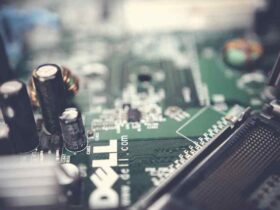
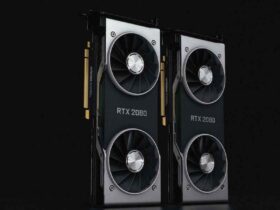

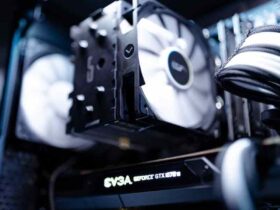










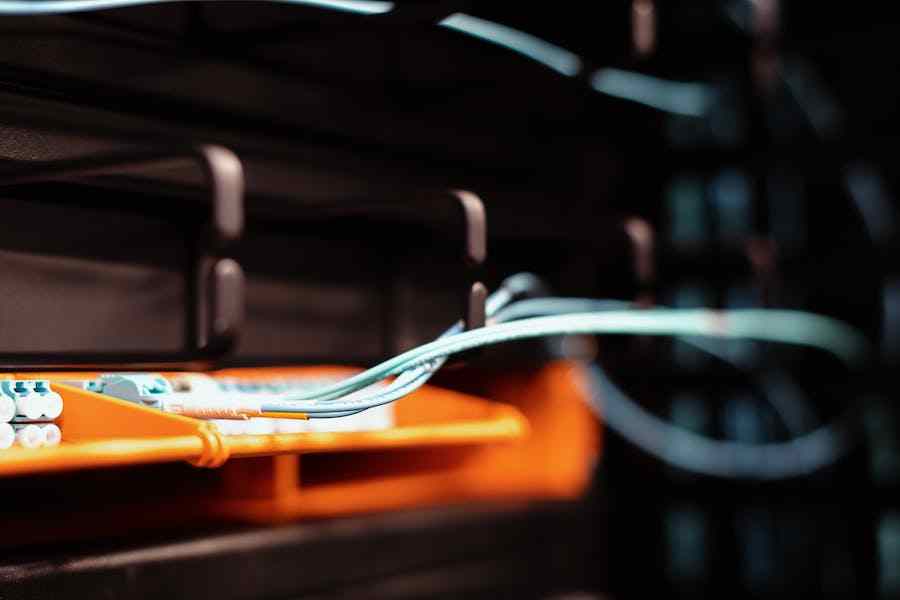


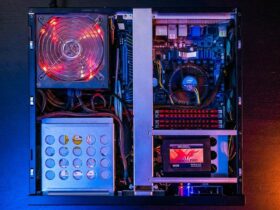

Leave a Reply